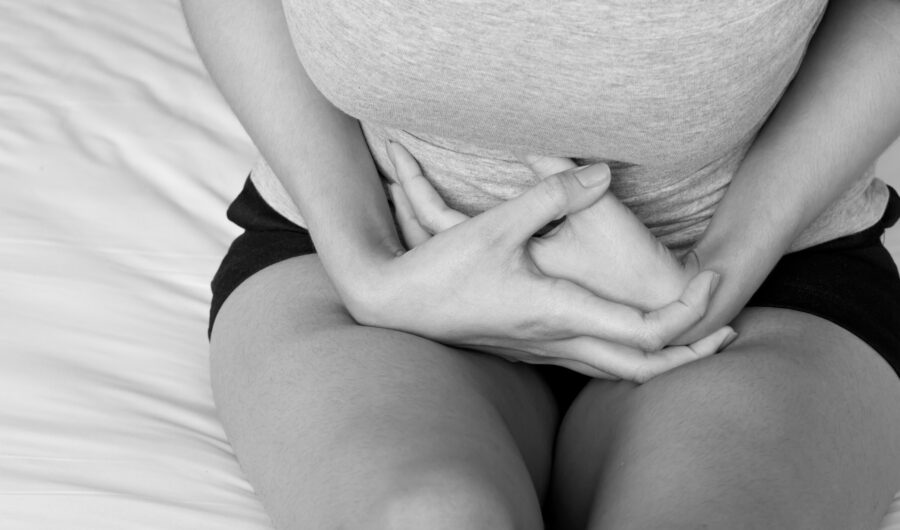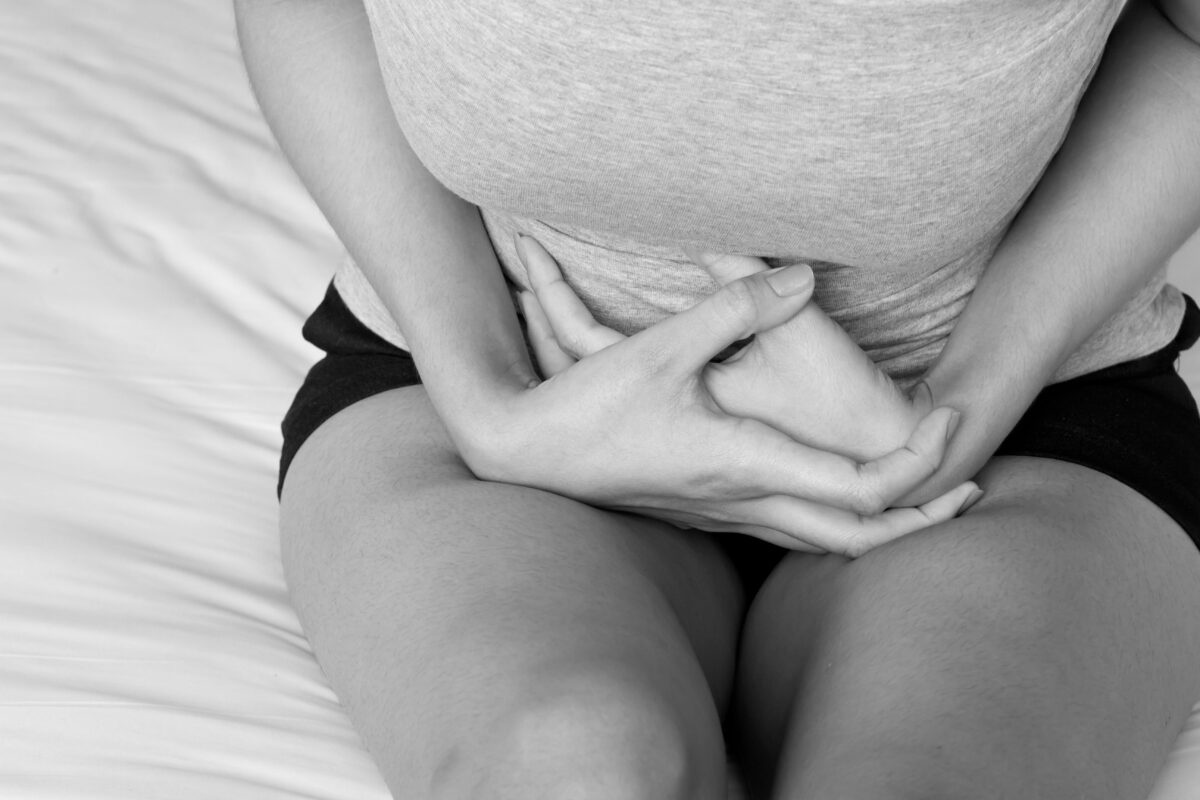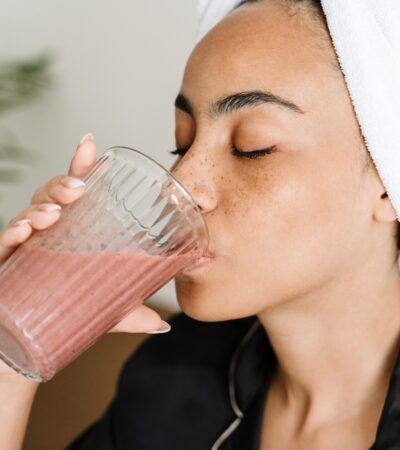Women’s health and nutrition coach, Meghan Hallet, breaks down the so often undiagnosed condition that is Endometriosis along with the symptoms, route for diagnosis and treatment options.
March is Endometriosis Awareness Month, which is just fantastic. The awareness around this debilitating condition continues to grow and grow, however, it is essential to keep on spreading awareness, as the more we understand the condition, the closer we get to decreasing the time in which one receives a diagnosis, treatment and continued compassion.
So, what is endometriosis?
Endometriosis occurs when endometrial-like cells appear outside of the uterine cavity, be it on the ovaries, fallopian tubes, peritoneum, bowel or bladder. Every month, similarly to the pattern of your monthly cycle, endometriosis becomes inflamed. Over time lesions can form and stick to certain areas resulting in reproductive issues, bowel or bladder problems. Symptoms include fatigue, painful sex, painful bowel movements or urinary issues, heavy bleeding and pelvic pain. Endometriosis affects a whopping 1 in 10 women of reproductive age in the United Kingdom.
Endometriosis shouldn’t be treated lightly and is so much more than a painful period. What’s more, many experience symptoms all cycle round, with links to gastrointestinal issue such as SIBO, histamine intolerance and chronic fatigue. The most frustrating part is that many still view it as simply a painful period, with 43% of patients making around 5 trips to A&E before receiving a diagnosis, taking an average of around 7.5 years from initial symptoms to diagnosis.
Nutrition and Supplements
The conventional treatment is surgery to remove the endometriosis. It is essential that leading up to that point and from then on, those with the endo put a huge amount of emphasis on nutrition, smart supplementation and lifestyle practices, as it can be a highly effective way of supporting the condition. What’s more, once you’ve had surgery, patients will still need to actively work to ensure that they are focusing on supporting an anti-inflammatory environment and a well-functioning immune system. Whilst in an ideal world, surgery would be a cure-all, for some, it just isn’t the case and the endometriosis can still be present even afterwards.
Here are the basics of endometriosis management, however, it is so important to remember that everybody is different. The way we support endometriosis is hyper-individualised, so I highly recommend working with a professional who can create a plan and approach that is personal to you. If you are concerned about your symptoms, speak with your GP.
Oestrogen Metabolism
Supporting oestrogen detoxification and excretion is something everybody should be doing to support hormone health, but especially those with endometriosis. We want to be effectively bio-transforming toxins and hormones and sending them out the body in the healthiest way possible.
This happens in three phases; phase one (biotransformation of the toxin/ hormone in the liver), phase two (conjugation of the toxin/ hormone in the liver) and phase three (excretion through urine or stools). Ensuring that this pathway is working optimally is key to preventing any potent, unfavourable oestrogen metabolites from recirculating back into the bloodstream and causing further problems. It is these oestrogen metabolites that can be a big driver of endometriosis and important to remember that even if overall oestrogen is low, still need to ensure it leaves the body in a healthy way. Here’s how to support oestrogen detoxification in the liver.
- B Complex (with methylated folate) as we require B vitamins for phase one liver detoxification as well as supporting cellular energy production. NutriAdvanced and Throne are great options.
- Amino Acids. Think quality protein or a collagen supplement. However, some find cutting down on red meat effective.
- Cruciferous veg and dark leafy greens. Most people can aim for 2 portions of cooked cruciferous veg daily. If you don’t react well to them, speak with a professional.
- Sulphur-rich foods, choline, glycine
- NAC
- Vitamin C and vitamin E, supporting antioxidant status.
- Tea: Dandelion, green tea, artichoke and burdock.
- Berries, lemon, avocado, asparagus and beetroot.
- Keep on top of hydration throughout the day.
- Limit alcohol + processed foods.
- Consider functional testing such as DUTCH testing to give more of an insight into the way your body is processing hormones and toxins.
Supporting the gut is another piece of the oestrogen metabolism puzzle, as ultimately we want those hormone metabolites to leave the body. Lowering beta-glucuronidase activity (an enzyme that can send harmful metabolites back into the bloodstream) and supporting excretion of hormone metabolites and toxins is important to focus on every day.
It isn’t uncommon to be experiencing gut issues with endometriosis, whether it’s a physical issue of endo tissue present on the bowels or dysbiosis. A stool test/ GI map can help you understand exactly what is going on in your gut and if it’s driving inflammation. You can then directly tackle the issue head-on rather than guessing. It can be expensive, however, so if it is not an option, work with a professional who understands your symptoms.
- Slowly work on increasing fibre intake. If we add too much in one go, it could exacerbate painful bowel movements. Take it meal by meal.
- Consider a probiotic but work with a professional depending on symptoms.
- Support gut integrity with collagen, vitamin C, zinc, vitamin A. We want that gut lining to be lovely and strong.
- Support healthy stomach acid so that you can break down the key compounds in cruciferous vegetables, prevent bacterial overgrowth and optimise digestion. For this, we need optimal levels of vitamin B6 + zinc.
Immune Support
Supporting the immune system is another essential pillar of managing endometriosis. Endometrial-like (remember, it is not the same) cells migrate outside of the uterus. Something is going on with the immune system if it hasn’t eliminated those cells, plus the body is usually in a high state of inflammation. We want to focus on those inflammatory pathways, supporting overall immune function and incorporating anti-inflammatory staples.
- Vitamin C, zinc, copper and selenium are all key nutrients for immune function. You may want to consider an Immune support supplement that incorporates all these nutrients or increase intake via food.
- It’s a really good idea to get your Vitamin D levels checked, easily done via the GP or companies such as Medichecks. Supplement accordingly.
- Omega 3 supplementation (EPA dominant, around 1-1.4g) or opting for three portions of oily fish a week. Omega 3 prioritises that anti-inflammatory pathway and supports the body’s pain response.
- Limit omega 6 (seed oils, processed foods, fried foods)
- Incorporate anti-inflammatory staples daily, such as ginger, turmeric, cinnamon, colourful fruits and veggies.
- Prioritise rest, relaxation and self-care.
- Limit refined sugars and refined carbohydrates.
Natural Pain Management
Although it is key to implement the long-term changes that support the root cause of the problem, there are a number of tools and practices that can support and relieve pain in the moment.
- A heating pad, tens machine or BeYou Monthly Patches
- Omega 3, as already discussed.
- Turmeric, ginger, quercetin + bromelain (especially if histamine is an issue).
- Chamomile, passionflower and lemon balm tea.
- CBD oil + CBD balm.
- Magnesium supplement and/or magnesium balm.
- Breathwork sessions and mindfulness.
- Physical therapy and acupuncture.
- Epsom salt baths.
- Psychological support, such as speaking with a therapist well-versed in the field. One survey of endometriosis suffers revealed 90% would like access to psychological support as part of treatment. You’re not alone if this sounds like something you require.
This content provided is not intended to treat, diagnose, cure or prevent any disease, and is for educational purposes only. Always seek the advice of your doctor and/ or another qualified healthcare provider for any questions you have regarding a medical condition, and before undertaking any diet, exercise or other health-related programs.
words by Meghan Hallet
Instagram: @meganhallett














